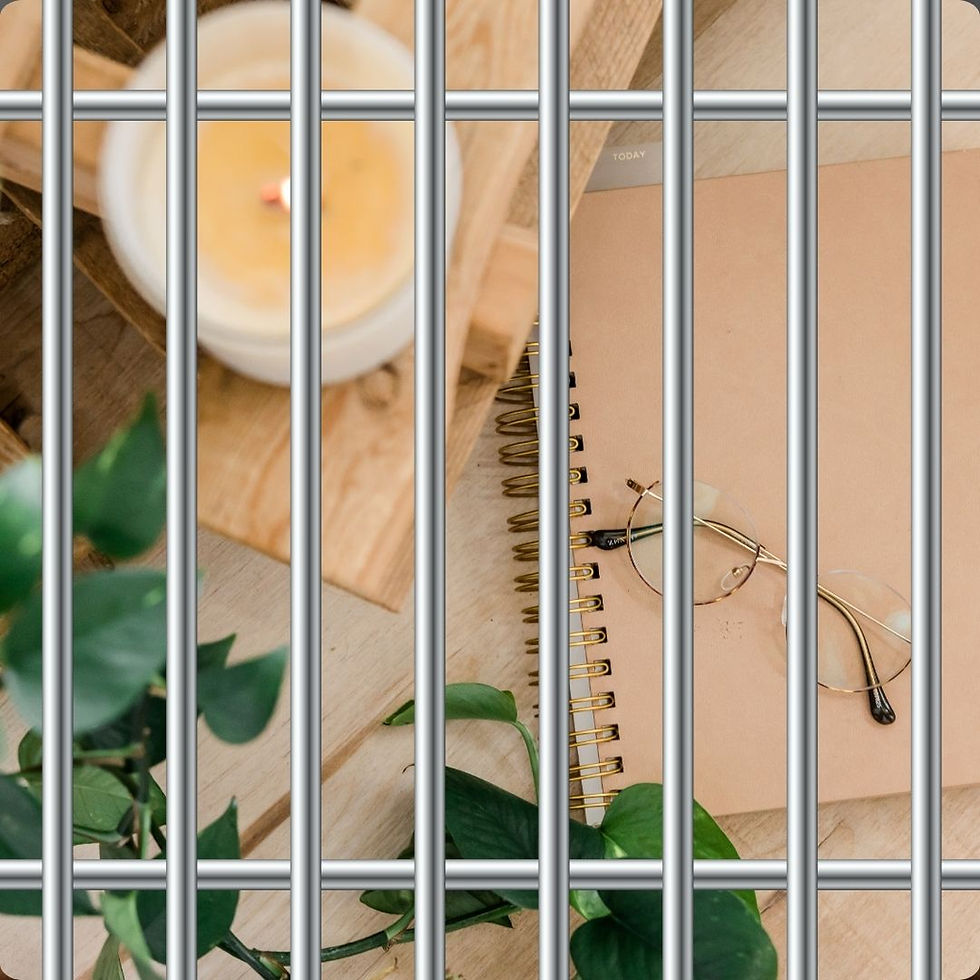Relaxation Prison: Has South Korea Solved Burnout?
- juliagranacki

- Aug 1, 2025
- 3 min read

As the relentless pace of modern life, the news cycle, and existential dread continue to wear on our mental and physical health, combating burnout has never felt more urgent. What if you could be locked in a comfortable room for 20 hours a day with no contact with the outside world, no computers or cell phones, where your meals are brought to you and you can read, do Yoga, or (god forbid) daydream?
South Korea has recently captured attention for its innovative response to this growing issue through the establishment of what many are dubbing "relaxation prisons." But what does this term entail, and could it be the remedy we all need for our collective fatigue?
What is a Relaxation Prison?
At first glance, the term "relaxation prison" may sound like a contradiction. However, these establishments are designed as refuges from everyday chaos. They offer a structured environment where individuals can disconnect from their routines and recharge.
The "cells" are small but comfortable.
"Each cell is about five square meters in size and comes equipped with a window, heated floors, a small table with some writing instruments, a tea set, and a yoga mat. There’s even a panic button in case of an emergency."
The goal is not to confine or punish but to provide a much-needed reset for the mind and body, free from external distractions.
Understanding Burnout
Let's clarify what burnout means. Burnout is far more than just feeling fatigued; it is a state of profound emotional, physical, and mental exhaustion triggered by persistent stress. This condition can lead to a decline in motivation, lower productivity, and negatively impact relationships and overall health.
With technology making it easier to work around the clock, burnout is becoming increasingly common. According to a 2022 Gallup survey, 76% of employees experience burnout at work sometimes, with 28% feeling burned out often. This statistic highlights the immense pressures we face in balancing professional and personal lives.
Why Relaxation Prisons Are Gaining Popularity
In South Korea, where work culture is notoriously demanding, relaxation prisons are gaining traction. These venues offer an escape for individuals who may feel compelled to prioritize work over their well-being.
One significant factor behind the popularity of relaxation prisons is their ability to create a guilt-free atmosphere. People can invest time in self-care activities without feeling the burden to be more productive. This acknowledgment of the need to relax marks a significant cultural shift that many are beginning to embrace.
For example, a relaxation prison in Seoul might see an influx of visitors during weekends, with occupancy rates soaring to 90% during peak seasons, reflecting the community’s high demand for restorative experiences.
Scientific Backing for Relaxation
While firsthand accounts from visitors are impactful, scientific studies also support the importance of relaxation. Research indicates that mindfulness practices, including meditation and yoga, can significantly reduce stress and anxiety levels. For instance, a study published in 2024 found that participants who engaged in regular mindfulness meditation reported a significant drop in anxiety and depression symptoms.
Moreover, environments promoting relaxation have been shown to boost creativity and enhance problem-solving skills. Thus, while the idea of relaxation prisons may appear unconventional, the benefits they offer are not merely theoretical; they are grounded in robust research.
Alternative Methods to Combat Burnout
Although "relaxation prisons" present an appealing solution, they don't address the bigger problem: Everyone is stressed and overworked! Not to mention, is a "relaxation prison" really a thing we're going to do here?
In the meantime, what can you do to combat burnout?
Mindfulness Practices: Simple techniques such as breathing exercises and quick meditation sessions can provide instant relief during busy days.
Routine Breaks: Scheduling short breaks throughout your work hours can boost energy and reduce stress.
Expressive Hobbies: Activities like painting, writing, or dancing can serve as emotional outlets and elevate mood.
Nature Therapy: Spending time outdoors has shown significant mental health benefits, leading to improved feelings of relaxation and happiness.
Lastly, (and I know I've talked about this before), read Emily & Amelia Nagoski's incredible book, Burnout: The Secret to Unlocking the Stress Cycle!
Final Thoughts on Burnout Solutions
So, has South Korea discovered the answer to burnout with "relaxation prisons"? While these environments may not be the universal solution, they symbolize a growing problem that people are f*cking fried!🔥
I wish I had all of the answers, but I don't. However, what I do know is that small changes can go a very long way. I always tell my clients to choose ONE of the listed suggestions and start there. Otherwise, deciding to do too many can feel like one more thing stacked on the pile of the never-ending to-do list, causing (you guessed it) MORE stress.
Instead, take a breath, pick the one thing, and commit to trying it. See what happens and let me know!









Comments